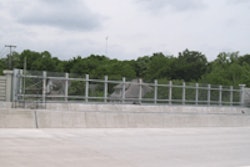
In late June, the EPA proposed delaying implementation of the rules of the portland cement National Emissions Standards for Hazardous Air Pollutants (NESHAPS) and New Source Performance Standards (NSPS) by two years, from 2013 to 2015. The rules are intended to limit toxic emissions that occur naturally in the production process, according to the Portland Cement Association (PCA).
This would be a major relief, especially to the smaller companies that will struggle with compliance regardless of the implementation date.
The EPA and industry representatives contend that postponing implementation will give businesses already struggling because of the economy more time to comply with the costly changes, according to a July 5 report in the Daily Journal of Commerce.
However, according to the report, environmental groups argue that implementation is already 10 years overdue and that further delay will result in thousands of deaths.
Andy O’Hare, vice president of regulatory affairs for the PCA, notes that the industry does not have any issues with implementing emissions regulations, but he says the timing is not ideal with the current economy.
He also points out that the EPA’s proposed amendments would change the way particulate matter is monitored and could significantly reduce the economic damage — to about $2.5 billion, according to the report.
“Although EPA has proposed to do this [delay the date], they haven’t finalized it, so we still have a ways to go before it is a done deal,” O’Hare tells Better Roads. “EPA is planning to finalize it in December. We won’t know until then about the final decision, but we are certainly hopeful. The industry certainly needs it.”
Cement consumption is way down from previous years, he says. “It’s about 35 percent off from 2005,” O’Hare says. “A good number of U.S. cement plants are sitting idle or operating way below capacity. We think this additional time will accomplish a lot of things.”
O’Hare says it will allow the companies more time to save to make the necessary investments. However, even with a two-year delay in implementation, “the rule is still quite challenging,” he says. “The industry will need to give significant investment [to comply].”
Even with compliance, O’Hare says there will still be significant emissions coming out of cement plants. By providing more time, it will benefit the environment in the long term, he says. O’Hare also told Better Roads that there is pending legislation being lobbied in Congress that would provide three years for compliance. “That legislation is not likely to pass with what’s going on in Congress,” O’Hare says. “If we don’t get the result we want in December, we’d be contemplating more legislative relief with Congress.”
The alternative, O’Hare says, is U.S. cement plants closing. “Whether or not we like it, we’ll end up having to import it from other countries,” he points out. “In many cases, most countries don’t have environmental standards we have or [the cement] would be produced in an inferior way. I don’t think Americans want to be a party to that.”
Birmingham, Ala.-based Vulcan Materials Co., the largest provider of aggregates, has a single cement facility in Florida “We believe it is appropriate that U.S. EPA’s proposed amendments to air quality rules include a two-year extension before implementation,” John English, manager of Vulcan’s public affairs, tells Better Roads. “This would give the industry sufficient time to evaluate options for compliance. With respect to Vulcan’s single cement production facility, we are in the process of evaluating our facility’s status relative to the future compliance requirements.”










